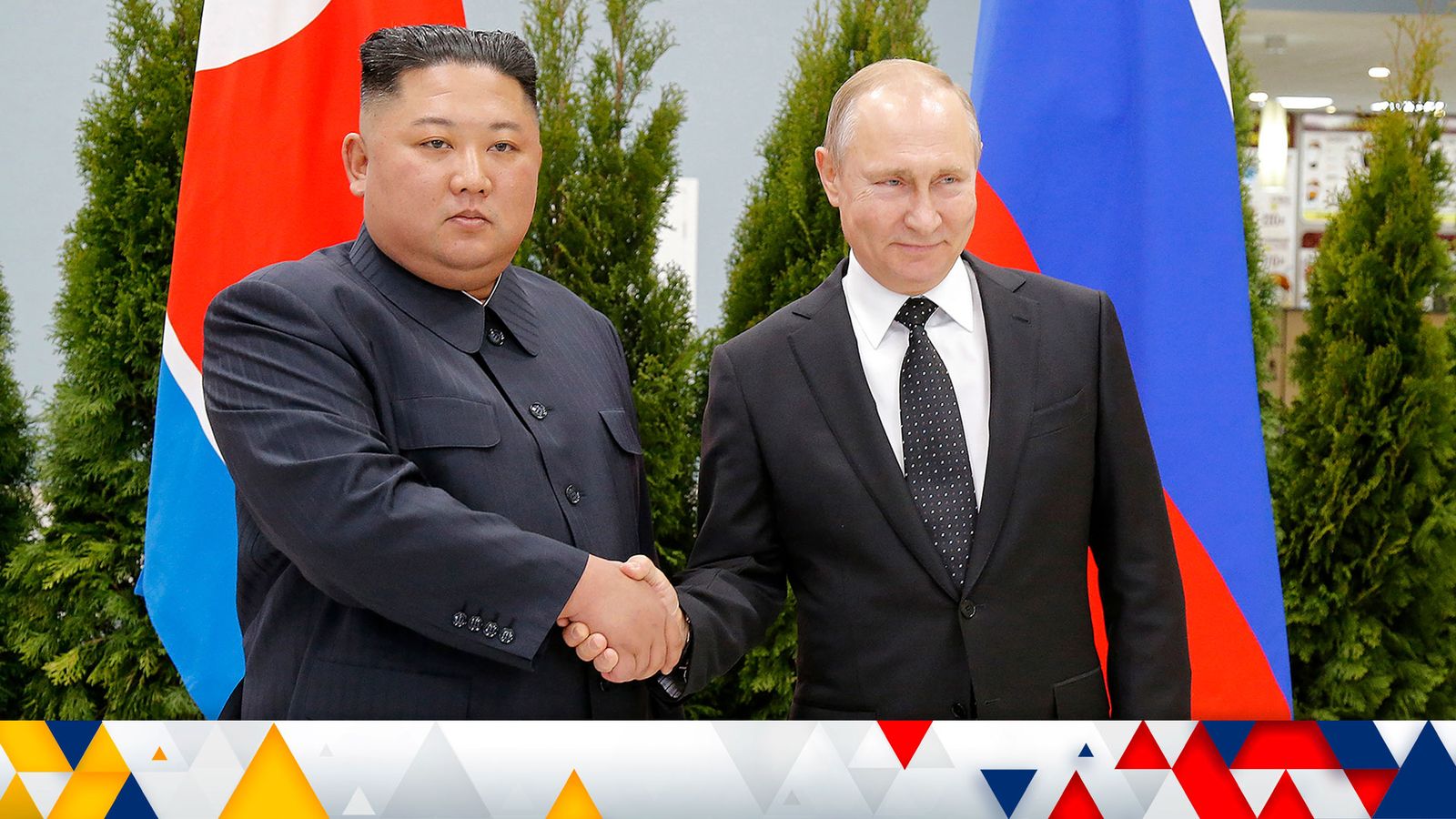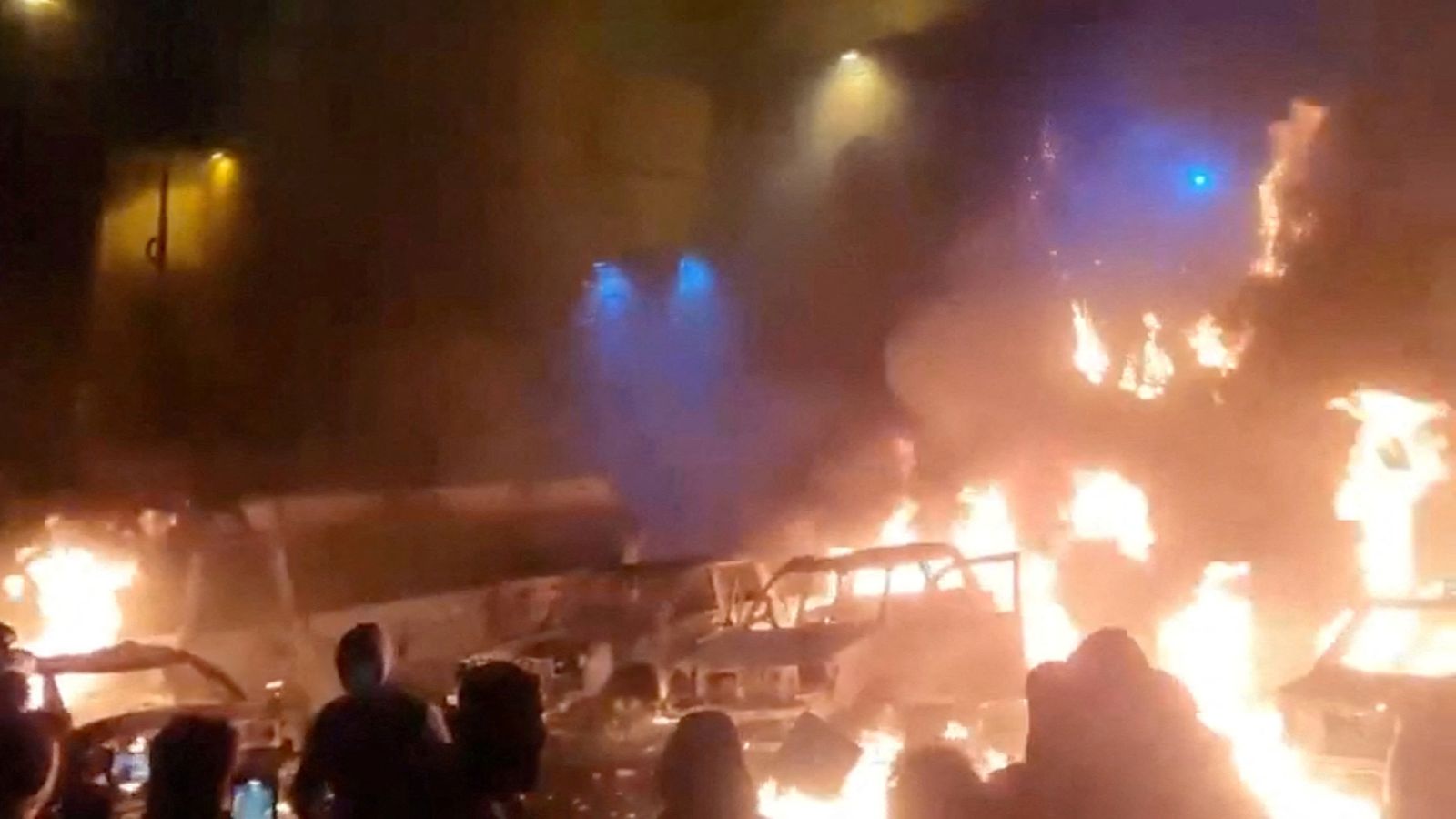The Kagarlytskyi family narrowly escaped Russian occupation in the Kyiv suburb of Irpin.
After three months on the run, moving from one place to another, they’ve returned home.
But they’ve lost everything, and they’re now living in a train carriage as they try to piece their lives back together.
Russia ‘storing weapons in nuclear plant’ – live war updates
They showed me around their cramped cabin. Up to 25 families are living on the train after it was converted into temporary accommodation to help with the large number of people whose homes have been destroyed here.
One carriage is now a shower block, the restaurant carriage is where they receive three meals a day. It’s basic but a creative use of space in a town where so many residents are now homeless.
“In general, the conditions are good,” says the mother, Mila Kagarlytski. “But how long we can be here – we do not know. Because at the moment we have nowhere to go.”
The Kyiv suburb of Irpin is about as close as the Russians got to the capital in this war. As bombs dropped on their neighbourhood – they witnessed unthinkable horrors.
“We were raking up debris and pulling out the wounded,” said the father, Yevhen Kagarlytski. “Literally two minutes later, we saw an airstrike with our own eyes. Two or three minutes after we ran there and started pulling people out.”
The family initially retreated to a basement, but as Russian troops began to occupy the town, they made the decision to escape – narrowly missing the barbarism that followed.
“We left on March 4th – it was the last day when we could leave by car. The next day, all communications were cut off,” said Mila. “There were already Russian tanks in Irpin. But we took the risk and went by our own car.”
The mass exodus of Russian troops from this area in April left behind a wrecked town and a traumatised community.
Residents who stayed had harrowing stories of abuse, aggression, and execution. The bodies of nearly 300 civilians were found here – a disproportionate number of them women.
Read more:
Russian ambassador warns of ‘prolonged’ war
Video shows ‘last minutes’ of young girl killed in Russian strike
Slowly, some residents have returned, but the threat remains here. The train carriage windows where they now sleep are taped up to protect from the impact of further bombings.
I asked the family what brought them back if there was nothing to return home to? The answer was simple – their son Vlad missed his school and he missed his friends.
His school has been bombed and is the most destroyed school in the area. But Vlad tells me about one of his friends who stayed in Irpin the whole time, living in a basement during the Russian occupation.
It was such a harrowing thing to hear from the mouth of a 12-year-old. But where else would he be able to talk through his experience if not back home in Irpin with his friends who’ve endured it too?
He proudly showed me the colouring set he’d been given and said he liked living on the train. What a contrast to most children’s summer holidays.
Then, in a serious tone, Vlad talked about his pet cat they’d left behind. He’d saved up his pocket money to buy Alice. Somehow she’d survived their absence and Russian occupation. They now make a daily visit to their bombed apartment building to feed her every day.
‘The new reality has started’ – listen to Ukraine War Diaries
He invited us to join them. We followed their family car along roads lined with bullet holes and destroyed buildings – a chilling reminder that it was only in the spring this leafy suburb was terrorised by street-to-street fighting.
The family have cleared all the rubble from their apartment block stairwell to reach Alice, who remains locked in their old home on one of the top floors. To see Vlad break into a broad smile brought a sense of relief.
You sense the family’s daily visits to feed their cat are as much for them. Almost everyone you meet here is scarred by this war.
Everyone is coping in their own way.





